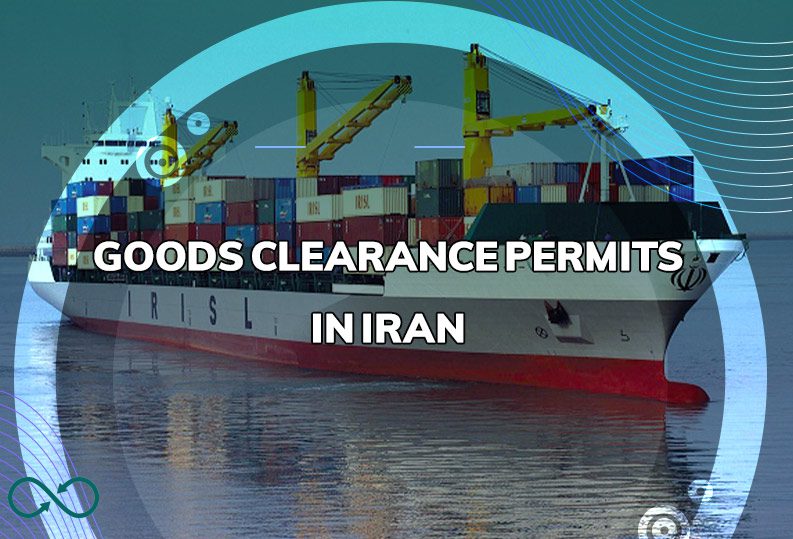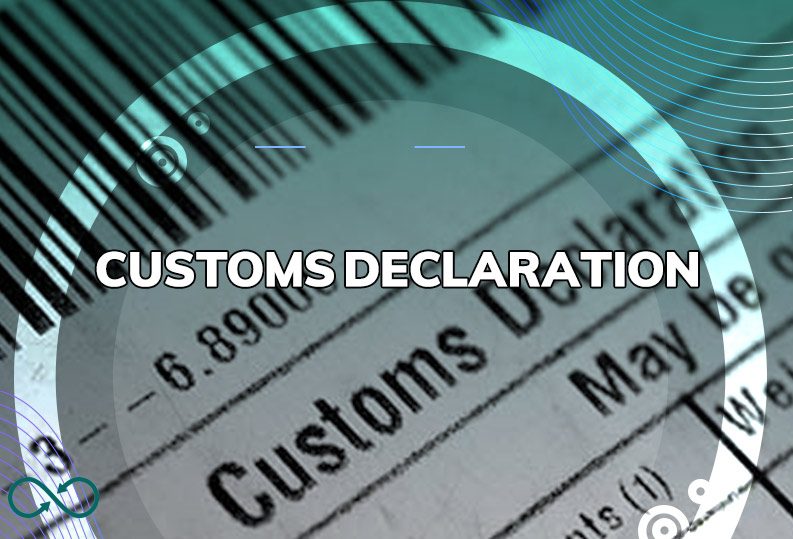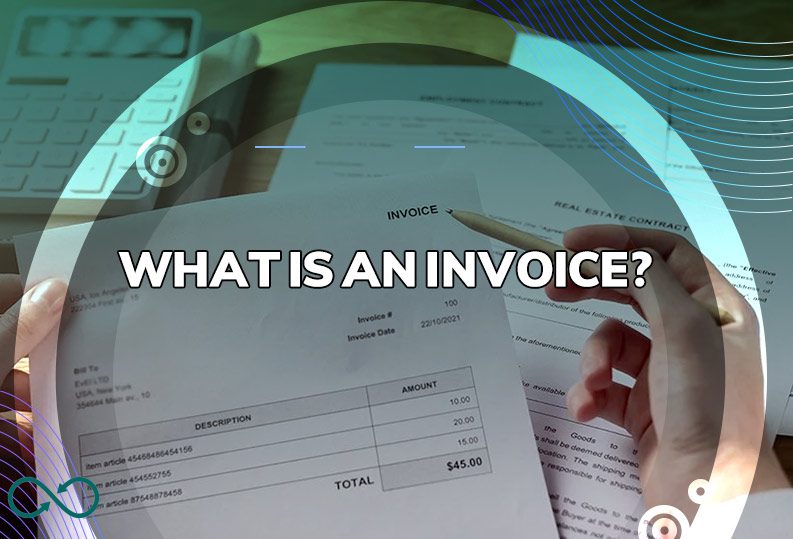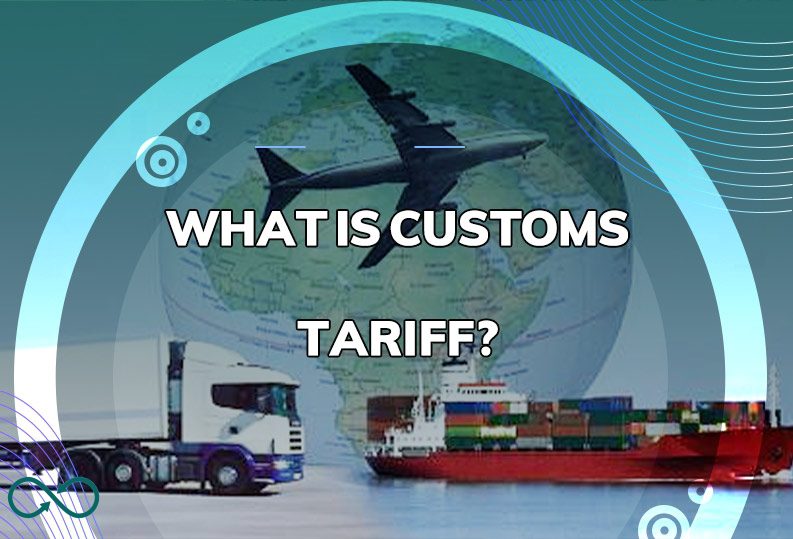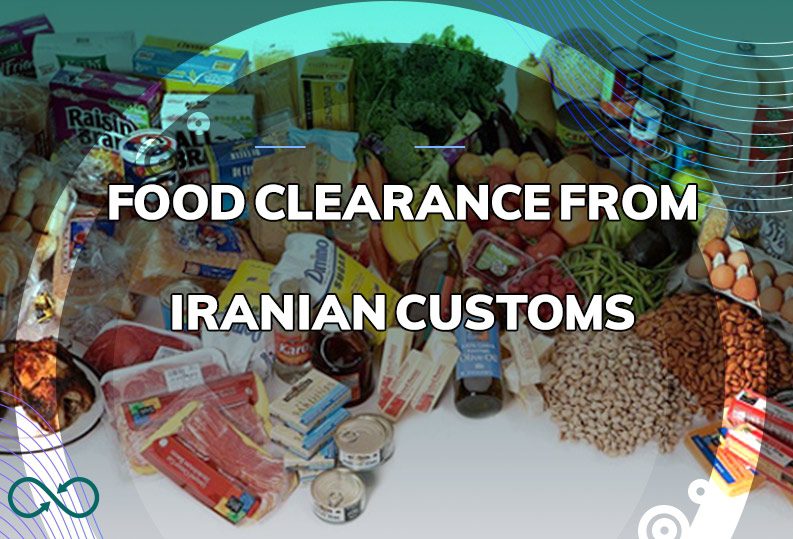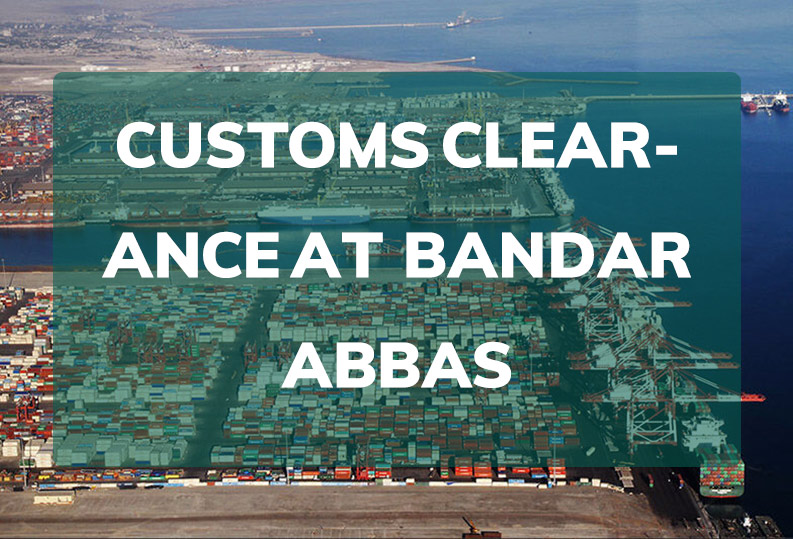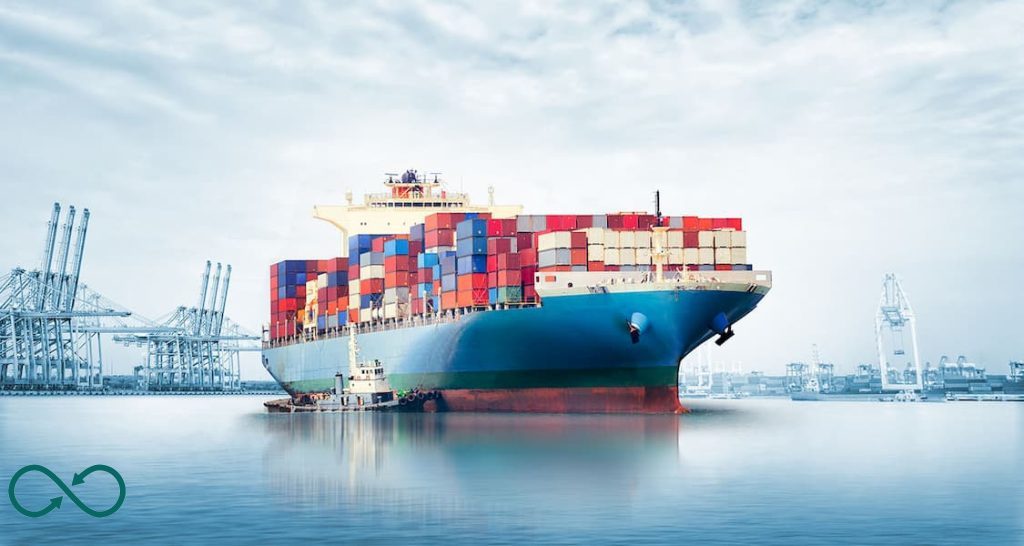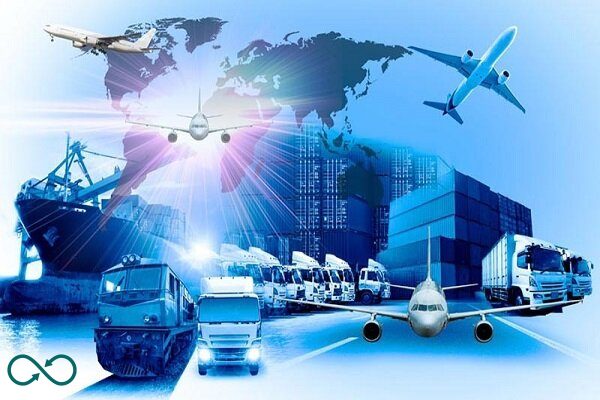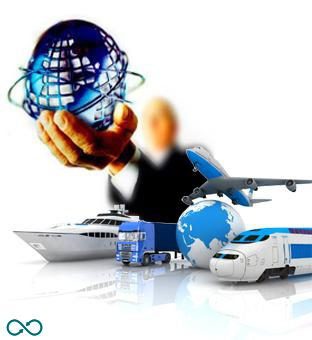The customs tariff, which is often referred to as the customs rate, constitutes a comprehensive set of rules and regulations that govern the application of customs duties on imported and exported goods. These tariff structures are usually established by government agencies or related organizations and are designed for several purposes, including regulating international trade, protecting domestic industries, and promoting a country’s exports.
Customs tariffs are complex frameworks in which determining applicable duties depends on factors such as product name, country of origin and destination, as well as its weight and value. These tariffs are usually presented in the form of a customs schedule or a series of codes that are carefully defined by the relevant customs. Using these tariffs, customs authorities can accurately calculate taxes, customs duties and necessary costs related to the import or export of goods.
Basically, the customs tariff plays a central role in the import of goods as a numerical criterion for classifying and determining the status of goods during the clearance process. Customs tariff can be defined as the amount of import duties that must be paid for importing goods. Historically, customs tariffs have evolved and incorporated various systems and methods, including elements related to customs, transportation, statistics and insurance, etc.
One of the most important aspects of customs clearance in international trade is the customs tariff code, often referred to as the Harmonized System (HS) code. This code acts as a universal identifier for each product, making it an essential tool for traders.
When engaging in global trade, each product is assigned a unique HS code that simplifies the classification and tracking of goods across borders. These codes are effective in ensuring proper customs duties and facilitating the smooth flow of goods in the global market.
The concept of customs tariff
The term “tariff” can have two distinct meanings and it is important to distinguish between them:
General Meaning: This understanding of “tariff” is often common among customs clearance practitioners and those who deal with imported goods. In this context, people may inquire about the “tariff” of a particular product, such as an espresso maker. It basically refers to the percentage or amount of import duty payable on that particular commodity as mentioned in the customs tariff book.
Specific meaning: In this particular context, the term “customs tariff” refers to a specific entry or line in the tariff schedule used by customs authorities. For example, in Iran, the customs tariff book is set in such a way that it assigns an 8-digit number to each product category. So, if someone asks how much is the customs duty of an electric iron? They basically look for the 8-digit code associated with that particular product in the customs tariff table.
In every country, the customs tariff of goods is documented in a comprehensive book. This book describes the special customs duties and taxes that are applied to each type of goods, according to the laws of that country. The government plays the main role in setting and updating these customs tariffs and usually announces any changes at the beginning of each year. In addition, customs tariffs proposed by the government require the approval of the Article 1 Commission, which is an integral part of the legislative process.
It is important to note that customs tariffs can be updated regularly, as was done in the case of the 1402 customs tariff in Iran. Staying abreast of these updates is very important for people involved in import and export activities.
The World Customs Organization (WCO) is an intergovernmental organization headquartered in Belgium. One of its main tasks is to manage the classification and valuation of products. The WCO is known for supporting and promoting the use of the Harmonized System (HS), commonly known as the Customs Tariff. HS is a standard system for classifying goods that makes it easier for customs officials and traders to understand and apply tariff rates in different countries.
Importantly, all WCO member countries use the HS tariff system, ensuring uniformity and consistency in customs procedures worldwide. This global standardization simplifies international trade processes and helps facilitate the efficient movement of goods across borders.
Applications of customs tariff code
The Customs Tariff Code, also known as the Harmonized System (HS) Code, plays a central role for countries and related organizations and serves as a versatile tool with a wide range of applications.
The tariff code serves as an international standard for determining the import duties of goods and extends its application beyond customs duties. Here are more details and tariff code applications:
Licensing requirements: The HS code plays an important role in determining whether the importation of certain goods requires a license or not. Governments and customs authorities use this code to classify products, which can help determine whether certain items are subject to import restrictions, licensing or other regulatory requirements.
Accuracy of Proforma Invoice: Accuracy in reporting the correct HS code on the Proforma Invoice is very important. An incorrect code, whether done intentionally or unintentionally, can result in penalties and fines. These fines, which are applied to the buyer who owns the goods, can be between 50 and 200 percent of the customs value of the goods. Hence, it is essential to ensure that the correct HS code is used to avoid costly mistakes during customs clearance.
Collection of Internal Taxes: HS code helps in collection of internal taxes in a country. By accurately classifying goods, governments can levy appropriate taxes such as value-added tax (VAT) or excise duties on imported items. This tax revenue contributes to the country’s finances, supporting public services and infrastructure development.
Determining Customs Tariffs: Perhaps the most fundamental purpose of the HS Code is to determine the tariffs, taxes, and duties that must be applied to imported and exported goods. This code provides a standard way to classify products and allows customs authorities to accurately calculate the appropriate fees.
International Trade Regulations: The HS Code serves as the cornerstone of international trade regulation. It helps governments maintain control over the movement of goods across borders and ensure that products are properly classified and subject to appropriate regulations.
Market analysis: HS code is a valuable tool for market analysis. Businesses, trade organizations, and governments use it to assess trade flows, track volumes of specific products entering or leaving a country, and make informed decisions based on market trends.
Identifying the origin of goods: In the global market, determining the origin of goods is very important for various purposes, such as preferential trade agreements, labeling requirements and quality control. The HS code helps identify where a product is manufactured or processed.
Prevention of Smuggling: Customs authorities use the HS code to detect and prevent the activities and importation of contraband. By accurately classifying products, they can identify discrepancies and possible illegal trade, thereby strengthening border security.
Statistics: Governments and international organizations rely on the HS code to collect trade statistics. This data is very valuable for economic analysis, policy making and evaluation of a country’s business performance.
In short, the Customs Tariff Code or HS Code is a versatile tool that supports the effective regulation of international trade. By providing a standardized classification system, it ensures proper assessment of customs duties, helps control the movement of goods, enables market analysis, identifies product origin, helps prevent illegal trade and serves as a basis for comprehensive trade statistics. HS Code usage optimizes a country’s ability to regulate international trade and increase its revenue by applying accurate tariffs to goods.
Customs tariff benefits
Determining customs tariffs for different countries has several significant advantages, each of which contributes to the overall economic and commercial management of a country.
Some of the key benefits of setting customs tariffs are as follows:
Supporting domestic industries
International Trade Regulations
Generating revenue for the government
Trade balance
Controlling the import of foreign goods
Export promotion
Procedures for obtaining a customs tariff code
To get the tariff code, you need to go through the following steps:
1- Enter the irancode.ir website and click on the Irancode tree section in the upper part of the site. In this section, enter the international trees section.
2- See the tariff classification in this section.
Types of customs tariffs in terms of purpose:
Fiscal tariff: Fiscal tariffs are primarily designed to generate revenue for the government. For example, import duties on passenger cars are set at a high rate to help finance the government.
Protective tariff: The purpose of protective tariffs is to create a favorable environment for domestically produced goods by imposing duties on foreign imports. This encourages consumers to choose domestic products, thereby supporting domestic industries and achieving balance of payments.
Indicative Tariffs: Indicative tariffs are used to influence consumer choices by making certain products more expensive to import. For example, higher customs duties on used road construction machinery encourage the purchase of new equipment.
Institutions determining customs tariff
Every year, the government of Iran convenes a meeting to determine the customs tariff of various goods. These tariff rates, which play an important role in regulating international trade, must go through a formal approval process, including the Article One Commission. After approval, these tariff rates will be communicated to the relevant governmental and organizational bodies.
A significant part of this process is carried out by the Standing Committee on Import and Export Regulations. This committee consists of representatives from the Ministry of Commerce, various relevant ministries, the Central Bank, the Chamber of Commerce and Industries and Mines, and the country’s customs. One of the primary duties of this committee is to draft legal bills related to export and import regulations. Then, the detailed executive regulations of these bills will be determined by the Article One Commission.
Harmonization of customs tariff laws with the laws of other countries is vital to maintain international trade relations. By ensuring that customs tariffs are aligned with international norms, it helps to avoid possible disputes and tensions between countries. Such alignment minimizes the possibility of trade disputes and measures that governments do not mutually recognize and helps to streamline international trade processes.
For individuals and businesses involved in customs clearance, it is essential to have a comprehensive understanding of import and export tariffs as well as the requirements for placing an order. In addition, having adequate information about the regulations in place for importing and exporting to specific countries is critical for a seamless and compliant international business operation. This knowledge ensures that customs procedures are carried out correctly and that the appropriate tariffs and fees are applied in accordance with the law.
last word
Tejarat Joyan Trading Company is a reliable and highly skilled company in the field of customs clearance services. With their extensive knowledge of customs procedures and regulations, they excel in making the import and export process significantly easier and more efficient for traders.
The key features of Tejarat Joyan Trading Company are:
Customs Clearance Expertise: Joyan Trading has a team of customs clearance experts who are well versed in the intricacies of import and export regulations. They have an in-depth understanding of the various customs clearance routes that enable them to navigate these routes with ease and ensure timely and compliant clearance of goods.
24/7 Support: The company recognizes the dynamic nature of international business. As a result, they offer 24-hour support and make themselves available to respond to traders’ needs and possible questions at any time. This commitment to customer service ensures that traders get help whenever they need it.
Efficient Clearance Timeline: Tejarat Joyan Trading Co. is renowned for its ability to expedite the customs clearance process. With a simple approach and a deep understanding of the required documents and procedures, they can usually clear the goods within 15-20 days. This streamlined timeline is especially valuable for merchants who rely on on-time shipping and want to reduce unnecessary delays in the clearance process.
Services that can be provided: import from India, allocation of imported currency, import from China, obtaining required permits for importing goods, importing goods from Turkey, clearance of spare parts and import of all kinds of spare parts such as import of trolley tires, all kinds of timing belts, etc.
In short, Tejarat Jooyan Trading Company is a reliable partner for traders looking for specialized customs clearance services. Their knowledge of customs procedures, round-the-clock support and efficiency in clearance make them an excellent choice for those involved in international trade. They contribute to the success and satisfaction of their customers by simplifying and expediting the customs clearance process.
